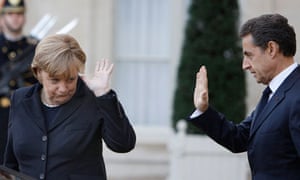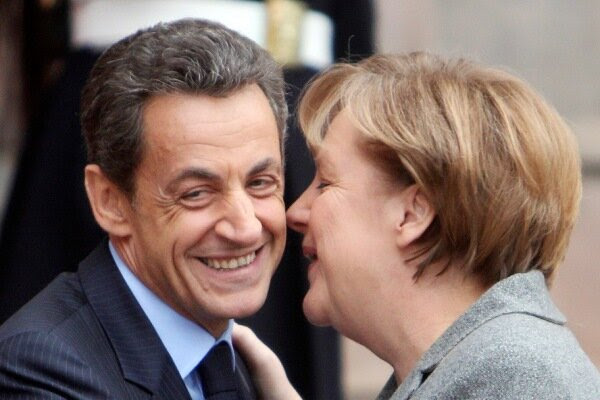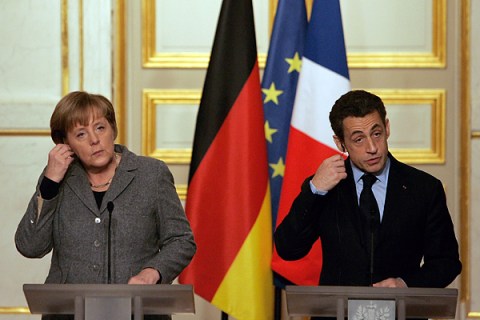...As the kids say: Find someone to look at you the way Putin looks at Gerhard Schröder.

Herr Schröder was Germany's Chancellor before Mutti came in.
Gazprom has paid him a lot of money. A lot.

Sarkozy, Merkel Announce Plans to Wed, Restore Holy Roman Empire
Europe has not been the same since the HRE folded its tent in 1806 after Napolean beat Francis II and forced him to abdicate on August 6.
Now 205 years to the day later....
I'm sorry, I can't continue.
Few countries committed more thoroughly to post-Cold War interdependence than Germany. That makes it among the most vulnerable countries today, as what once tethered the world unravels. How, and with whom, Germany reweaves the ties that bind going forward make it a pivotal state in shaping just how divided the next global order will be.
Though considered the anchor of Europe, Germany grew dependent on America for its security, Russia for the cheap energy that fueled its industries and China as the primary market for its export-led economy, upon which prosperity rested.
Fast forward to this year from last February when Russia invaded Ukraine. By radically boosting defense spending to over $100 billion, Germany implicitly acknowledged what Finnish Prime Minister Saana Marin has said publicly: “Europe isn’t strong enough right now. We would be in a lot of trouble without the U.S. involvement in the war in Ukraine.” Europe thus realizes it must become less reliant on America for defense in what has become a tough neighborhood.
Germany has scrambled to keep the lights on by just as radically shifting the sources of its energy imports from Russia to Norway, the Benelux countries and France, redirecting the flow of its interdependence to more secure territory. Even the Green Party within the governing coalition was compelled under the circumstances to accept the reopening of closed coal plants and delaying the scheduled shutdown of its nuclear industry.
Where Germany has not radically changed course, so far, is in the third pillar of its dependency — the relationship with China. Here it strays from America’s strategic effort to bring the rest of the West along in containing China and thwarting its further rise.
Containers Instead Of Containment
In November, German Chancellor Olaf Scholz was the first G7 leader to meet President Xi Jinping in Beijing since the COVID crisis began. He was joined on his visit by top CEOs from Volkswagen, which sells 40% of its cars in China, Siemens and the chemical conglomerate BASF, which also have major stakes there. Overall, 46% of industrial firms in Germany rely on intermediate inputs from China.
Scholz has also deepened, instead of constricted, the connection with China by pushing through the partial purchase of a Hamburg container terminal by Chinese-owned Cosco, albeit negotiating its share down from 35% to 25%.
In doing so, Scholz faced opposition not only from the U.S., but from key members of his government. One of his own state secretaries protested that the purchase “disproportionately increases China’s strategic influence over German and European transport infrastructure and Germany’s dependence on China.” Germany’s domestic intelligence chief was even more scathing in his view that China is a far greater long-term threat to the country’s security than Russia. “Russia is the storm. China is climate change,” he warned.
Scholz is no more naive than President Frank-Walter Steinmeier, who insists that Germany must “learn its lesson” from the war in Ukraine and must avoid “lopsided dependencies.” He added: “That applies in particular to China.”
But the chancellor is also acutely aware of what a sharp decoupling from China would mean for the German economy....


